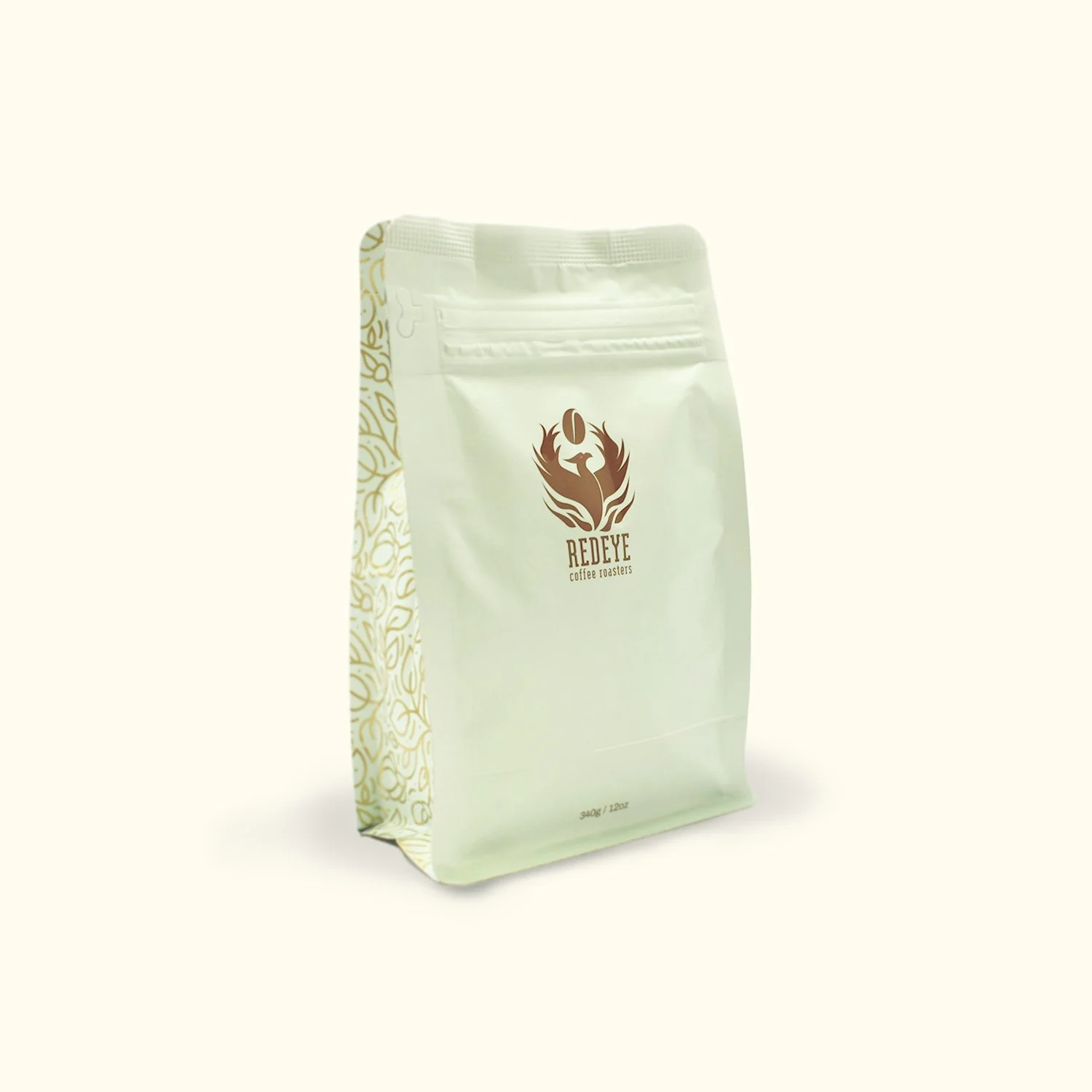BURUNDI | Hafi lot #22 natural 12oz
BURUNDI | Hafi lot #22 natural 12oz
cupping notes: orange, fig, floral, sweet, juicy
light/med roast
The remotest of the remote! That's often where you find the prize. In the hills of Muyinga Province, the farmers of Hafi coffee would face more than a day's journey if they tried to deliver their freshly harvested coffees to the nearest wet mill. That's why, until this year, all Hafi coffees were naturally processed. It was even difficult for the exporters to visit them as it's a six-hour journey from Bujumbura if the roads aren't washed out. Jeanine Niyonzima-Aroian the founder of JNP Coffee did visit though and what she found was that these farmers in their remoteness had become masters of the natural process. They had developed a 24- and 48-hour anaerobic process for closing the coffee cherries in raised beds. This controlled fermentation adds a jamminess to the coffee as well as other wonderfully complex multi-layered flavors. Hafi is named for the farmers' desire to have a washing station nearby. Hafi means "near" in Kirundi.
Burundi has plenty of regions with favorable conditions for coffee production. The altitudes range from 772 meters above sea level (masl) to 2,670 masl at Mount Heha’s summit. Burundian coffee is usually grown at high altitudes between 1,200 and 1,950 masl.Burundi is located in a mountainous area of Africa, forming part of the Albertine Rift in the Great Rift Valley. The country's nutrient-rich volcanic soil and high rainfall levels of approximately 1,200 mm per year also contribute to Burundian coffee’s distinct, intense fruit flavors and syrupy sweetness-Burundi coffee features flavor experiences like fruit punch, bright acidity, lingering candy-like finishes, expressiveness, and juiciness, with tropical notes. Coffee farms can be found across the country, but are mainly concentrated in the northwest. The most well-known regions for the best coffees, and where we are also located, are Kayanza, Ngozi, Muyinga, Karusi, Cankuzo, and Gitega.

